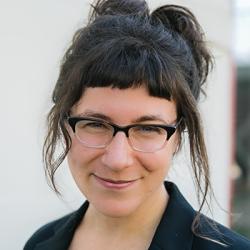
WHY should I plan for reflection?
By definition, reflection is serious thought and consideration about an idea or experience. In PBL classrooms, I’ve found the benefits of reflection are astounding! Students experience:
- deepened learning, via
- sharpened analytical skills and
- integration of new knowledge with previous knowledge & experiences
Students who are able to explain why they are completing a task or why the activity is important to their final product are one step closer to the integration of new knowledge.
Upon WHAT should students reflect?
Reflection should be ongoing and throughout the project, not solely at the end once the project is complete. As project designers, we can anticipate many of students’ "Need to Know” questions for the project, to inform our thinking about what students can reflect on. To anticipate the “Need to Know” questions consider:
- What are the necessary questions students will need to pose?
- Which content-based questions do you expect, knowing your students' skill sets?
- What product-based questions may arise?
Let’s look at how some BIE project planning forms can help. Planning with the end in mind is easier when we have already considered what we expect students to experience. The anticipated “Need to Know” questions:
- stem from the Key Knowledge listed on the Project Assessment Map we create;
- help us choose an effective question focus when using the Question Formulation Technique to spark inquiry as we gather students' questions; and
- help us select standard-based checkpoints and learning targets
For example, take a look at the Medical Interns Project Assessment Map (on the BIE website here) below:
The Key Knowledge, Understanding, and Success Skill listed for the final product are informational writing, circulatory system, and critical thinking. These are the three main areas where we’d anticipate students’ content-based and product-based questions to arise and thereby drive instruction. Herein lie the key learning experiences upon which we can plan for students to reflect. Look closely and we can notice that the key knowledge about the circulatory system is going to be formatively assessed via reflective journal writing.
Let's look deeper into the Medical Interns project design forms to explore this question of planning for student reflection.
HOW will students reflect?
Student reflection can occur both informally and overtly throughout a project. We can integrate reflection into our design:
- On page 2 of the Project Design: Overview form in the Reflections Methods section, individuals, teams, and whole classes can perform any of the following strategies to reflect on the key learning experiences:
- Journal/Learning Logs
- Whole Class Discussions (e.g. Harkness Discussions & Socratic Seminars)
- Surveys
- Focus Groups
- Fishbowl Discussions
- On the Project Design: Student Learning Guide form, Checkpoints/Formative Assessments are important for reflection planning. For each Learning Outcome/Target on the Student Learning Guide, we can strategically scaffold the final products' anchor learning targets by associating each checkpoint with a reflection strategy based on the Key Understanding or Skill.
For example, in the Medical Interns project (above sample is also here), for the Learning Outcome/Target "I can write a report to inform a patient of his/her diagnosis,” reflective journal writing is incorporated as a Checkpoint/Formative Assessment method.
We can also build the culture of our classrooms to incorporate strategies such as the Think-Pair-Share strategy. Think-Pair-Share can be employed to “breadcrumb” students through the reflection process. When given a problem or prompt, students can individually think on their reflection, pair with a partner to discuss their responses and then share aloud to the class where their reflections are similar or where they diverge.
- Once the project is complete, we can use the Self-Reflection on Project Work Handout to help students look into the mirror and reflect on their experience as a whole.
John Dewey said it best: "...we learn from reflecting on experience." Creating a learning experience is all the more purposeful with strategic reflection. Happy Designing!

